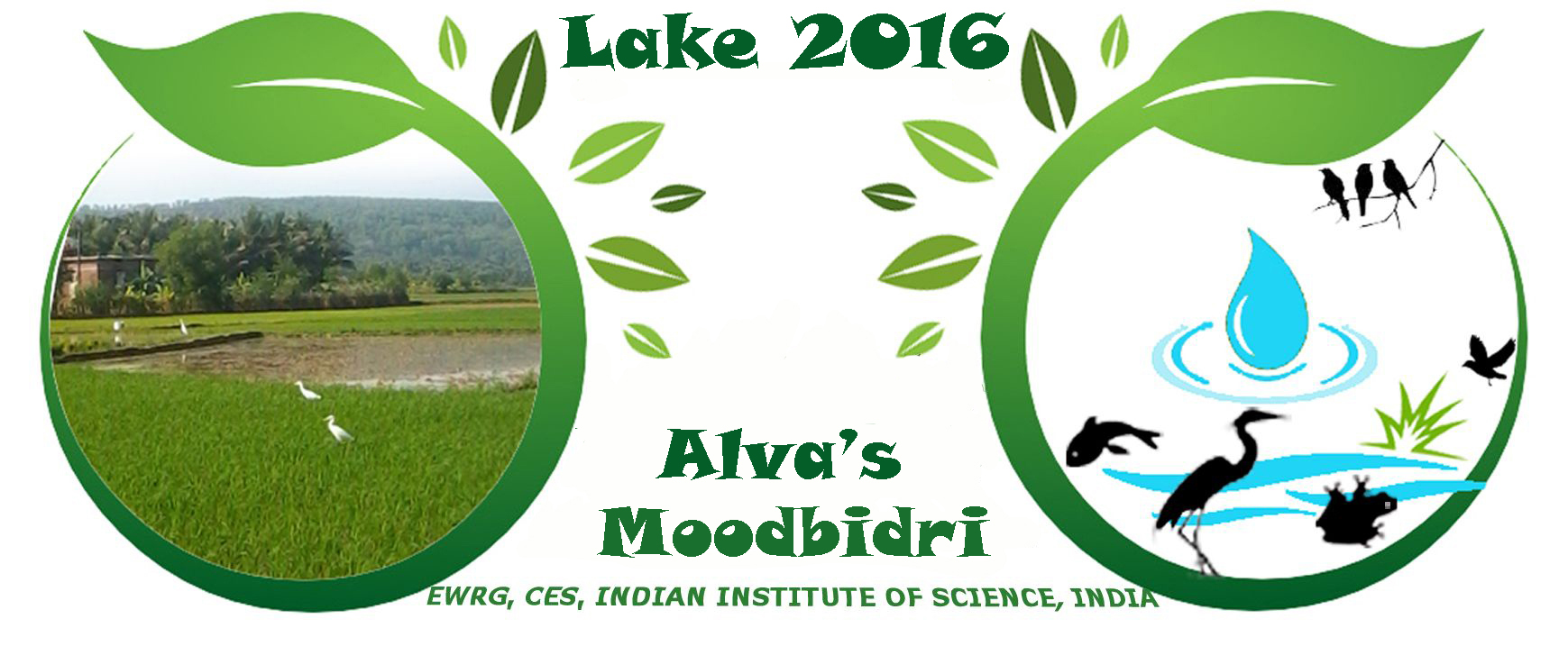
|
Introduction
Symposium focusing on lakes/wetlands popularly known as “Lake Symposium” was initiated by the Energy & Wetlands Research Group at Centre for Ecological Sciences, Indian Institute of Science, Bangalore in the year 1998. The theme was broadened in 2000 (Lake 2000) with a wider participation of education institutions, Governmental and non-governmental organisations, etc. The basic idea of the symposium was to bring out the trends in ecosystem conservation, restoration and management including the hydrological, bio-physical, people’s participation and the role of non-governmental, educational and the governmental organizations and the future research needs. Lake 2016 will be the 10thBiennial Lake Conference focusingon“Conservation and Sustainable Management of Ecologically Sensitive Regions in Western Ghats”will be held at foothills of Western Ghats. The theme of World Wetlands day 2016is Wetlands for our Future: Sustainable Livelihoods to demonstrate the vital role of wetlands for the future of humanity and specifically their relevance towards achieving the new Sustainable Development Goals. Lake 2016 conference provides a unique opportunity to increase understanding of the roleofwetlands in sustaining the food, water and human livelihood with the challenges faced by thesefragileecosystems. Wetland ecosystems are cradles of biological diversity, providing water and primary productivity upon which countless species of plants and animals depend for survival. The degradation of these vital ecosystems is linked to continuing problems of land cover changes, deforestation, habitat fragmentation, pollution, indiscriminate disposal of liquid and solid wastes, and issues related to economic productivity and ecological security. The structural changes in the ecosystem due to land cover changes, will influence the functional aspects namely hydrology, bio-geo chemical and nutrient cycle, which are evident in many regions in the form of conversion of perennial streams to seasonal and disappearance of water bodies leading to a serious water crisis. There is growing evidence that biological diversity will be severely threatened by rapid climate change. Also, hydrological changes could be the dominant effect of climate change, as snowmelt increases, as evaporation rates increase and as droughts, storms and floods intensify. Much of the hydrological changes will be reflected in changes in freshwater ecosystems including most of the wetland areas. The biological impacts include dwindling of the biodiversity, habitat damage and loss of spawning grounds of aquatic organisms, reduction in inland fisheries resources and loss of vegetation. Conservation of natural resources through sustainable ecosystem management and development is the key to our secured future. Formulation and implementation of action plans that best conserve wetland resources require an understanding of issues, concerns and threats to water resources. Approaches towards this direction include:
|
Important Dates
MyVillageBio Workbook
|

